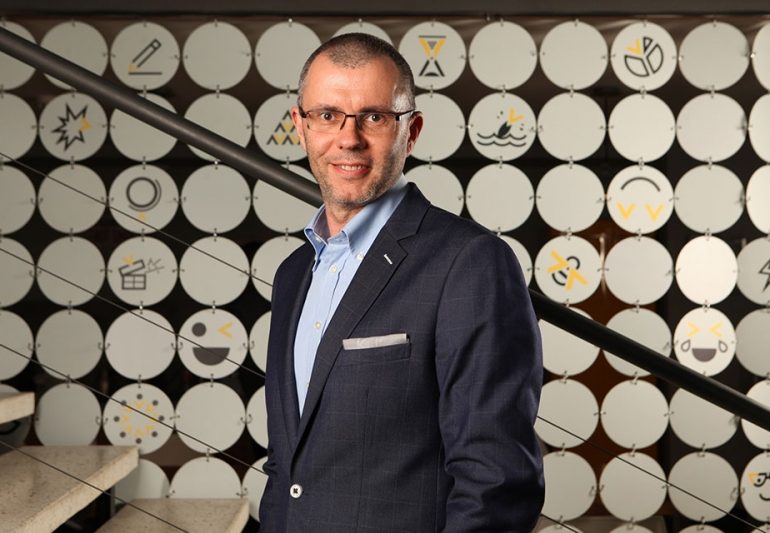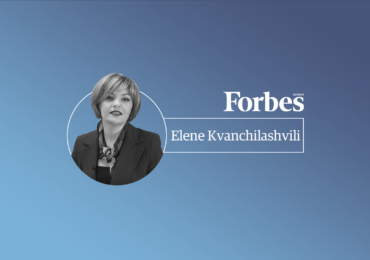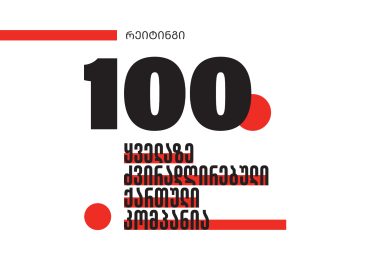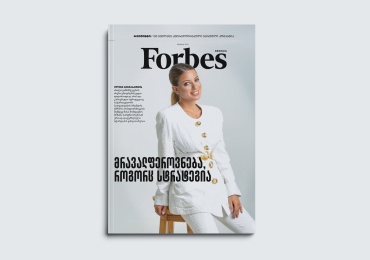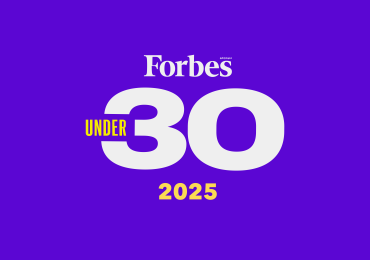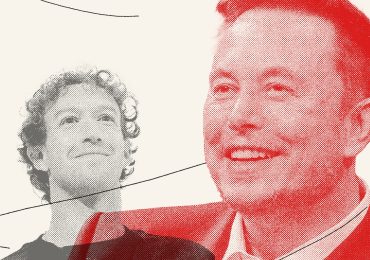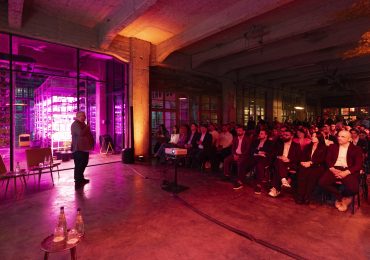351 qualified employees, 1.3 million loyal customers, third position on the market, and opportunities that Beeline must approach with renewed vigor.
Open space stretches as far as the eye can see. There are numerous computers, it is bright, and the clicking and tapping of keyboards fills the air. All of this can easily be observed from the reception. The observer may be a demanding customer, or someone sent to spy on behalf of a rival company, but it does not matter – there is nothing to hide here. You will be carefully listened to, all your questions will be answered, and even though time is the scarcest commodity in ensuring that rapid progress is maintained, not a single second will be spared in the process of accommodating you.
This is the head office of VEON Georgia, which operates the Beeline brand. Since April of 2017, it has been headed by Andrzej Malinowski, who sees it as symbolic that the company is operating as VEON Georgia, rather than Mobitel. The name change reflects the fact that the organization is no longer focused on mobile communications alone.
A glass wall separates Malinowski’s room from the common area, but only because the whole office agreed on this. The wall is not meant to act as a barrier to anyone – the boss prefers to adjust to his employees’ schedule, rather than the other way round. Whoever may wish to share their work, ask for advice, or simply say hello, does not need to wait.
Malinowski greets me with a perfect ‘gamarjoba’, but as he proceeds to add several more phrases in Georgian, I begin to suspect that his crib notes might be somewhere nearby. Indeed, a list of useful phrases is posted on a wall. He is passionate about learning Georgian, but considers it a difficult language – even more difficult than his native Polish, he says.
Malinowski is a Polish businessman with 17 years of experience in managing primary consumer goods production and e-commerce companies. Among other things, he has also headed start-up businesses, and been involved in implementing and developing mobile applications. He brought this experience and vision with him to Beeline. Under his leadership, Beeline was first to implement the personal internet platform VEON. In May 2017, the company posted a record 127% growth in data consumption amongst its subscribers which, according to Malinowski, makes the company the market leader in this respect.
What constantly stands out about Andrzej Malinowski is that he is in touch with reality – he does not shy away from the fact that holding the third position on a small market may not be the best result. However, he knows exactly what must be done to ensure that the existing 1.3 million subscribers are happy, and that the quality, speed and range of services keep improving.
According to Malinowski’s philosophy, development cannot be forced upon something or someone. It’s all about seizing the opportunities that can naturally speed up the development process.
We begin our interview by discussing challenges. However, I soon realize that it is not enough to speak to a man full of enthusiasm about challenges alone. Therefore, I decide to reformulate my first question.
Let us begin by talking about both challenges and opportunities – where there is one, the other is usually not far away, even if it is sometimes difficult to spot…
Thank you for formulating the subject this way. That is exactly how we see everything around us. It is not a secret to anyone that we find ourselves in a specific situation, holding the third position on a small market. However, as you say, this is both a challenge and an opportunity. You cannot hold a 100% market share in any business. Even if you have a 40% share, you are seen as a very big player, and different mechanisms come into play. Therefore, I approach the matter in the following way – until you own 100% of the market, there is always room for growth. At this stage, our main task is to offer our existing 1.3 million customers the best possible service. All 351 of our employees are working towards this goal. Luckily for me, all the people working alongside me are professionals. As Steve Jobs once said – ‘it doesn’t make sense to hire smart people and then tell them what to do; we hire smart people so they can tell us what to do.’ My approach is the same, and it works.
For example, teamwork enabled us to switch our 1.3 million subscribers from various IT systems to a single system overnight, without us losing a single one of those customers. We then shared our experience with our colleagues in Algeria, where they have 17 million customers. Despite this huge number, the system worked for them too. They phoned and thanked us for paving the way for them.
Being relatively new in my position, my task is to ensure that members of my team are happy coming to work, are able to contribute all of their capabilities and emotional intellect to our cause, and create a company that listens to its customers. “A company that listens to you” is such a great motto that I would put it up on every wall. However, we must keep in mind that many people view listening as a passive activity – as if you are listening and not actually doing anything. Our goal is to pick up the messages from the market (both the positive and the negative ones), and act accordingly going forward: you may be doing well today, but there is no guarantee that you will also be doing well tomorrow.
What does this mean specifically? What are the company’s ambitions?
Our main goal is to digitalize our core business. This means that we want our customers to use our online services more frequently, and we want these services to be as straightforward and easy to use as possible.
Our industry has undergone drastic changes over the last 20 years. Mobile phone operators made a lot of money, as they were the pioneers of an industry that was growing and developing at a fast pace. People suddenly had a chance to talk to each other and surf the internet from any location using new technologies – 3G was followed by 4G, and now we are already talking about 5G, even though we have not seen a single business case for it yet, indicating that this technological solution will bring revenues to the industry. Progress is good, and naturally, we are thinking about how to maximize this new potential. At this point, it is not clear how profitable 5G will be.
For us, progress means fully concentrating on the group of consumers who basically grew up with our services. We were the first to implement 4G on the local market. Since 2015, we have increased the use of mobile internet by 127%, which makes us an undisputed market leader in this regard. We are implementing a completely novel experience in the form of VEON, and this will be one of the innovations we plan to use to transform customer relations from an offline to an online experience.
These ambitions have certain risks attached to them, as we have various types of customers, some of whom clearly prefer direct communication to communication through a digital medium. On the other hand, some of the decisions have already been made – not by me, not by our head office in Amsterdam, and not by our digital office in London, but by the 21st century itself: according to the most recent data, the number of downloaded mobile applications exceeded 150 billion last year alone. Keeping in mind the global population figure, there is nothing more to add on this matter – numbers speak for themselves.
From our point of view, a mobile phone screen is similar to real estate – we must fight to ensure that our application gets to occupy a space on this tiny area. The easier it is to use the app, the higher the chances that direct communication will be replaced by self-service mobile applications. Most importantly, this will be beneficial to our customers, as it will make their lives simpler, and on the other hand, it will also benefit the investors, as the value of a company is partly determined by the level of development and accessibility of its self-service mobile applications.
This industry always has room for development and progress, which does not imply simply adding more applications or developing applications that do not work for the customer. Applications must be simple to use and simple to understand. As is the case with a good joke: if it has to be explained, then it’s not a good joke.
How easy is it to communicate technological innovations to the population?
This is a very appropriate and fair question. Let me give you one example. Several years ago, I was working in Ukraine, managing an online store that sold shoes and accessories. This service arrived in Ukraine substantially later than in Western Europe. Early during the store’s operation I was asked the same question, and my response was as follows: in Western Europe, people use the internet to find themselves a partner and to get advice on how to solve various important issues in their lives, so why should it be problematic to buy shoes and clothes online, which you can easily return if they are not to your liking? To answer your question, this is my approach: trying to force something, even development, onto people is not good, and it does not work. Implementation of new technologies follows a natural evolution process – it is easy for some and difficult for others.
This natural evolution costs money though, doesn’t it?
Yes, that is true. However, in the end, it is a risk worth taking. It is a challenge worth accepting, and there is a specific form for measuring its success in terms of return on investment (ROI). We can talk a lot about our company values and our relationship with the customer, yet all of this will be impossible if we do not make profit for our shareholders. For that reason, we must always balance the customer’s demands with the company’s financial interests.
People in Georgia and the wider region attach preference to communication with an individual, though for example, using a chat program does not make you any less human. At the end of the day, every such system has been created and is managed by humans. Artificial intelligence is being developed and perfected right now as we speak. All we can do is explain to our customers why self-service platforms are more beneficial, time-saving, easy to use, and simply 21st century.
Customer feedback is important to us. We keep saying that if something does not work, if it is not comfortable or beneficial enough – let us know, we will listen to you.
This is interesting – how seriously do you take this feedback? I think that culture plays an important role here, in the same way as you described the process of embracing technological innovations earlier. Based on my observations, people in Georgia struggle to formulate constructive criticism.
We can also view this question as part of the issue at hand – is it more of a challenge, or more of an opportunity? I agree with you: people here prefer to contact call centers and spend a lot of time clarifying the terms of use, rather than to openly admit that something is complicated, should be improved and so on. We rarely receive advice of this kind.
Nevertheless, we are adapting to our customers and their communication style by designing applications that will provide them with comfort, rather than take them out of their comfort zone artificially. A good example of this is the hotline waiting time, which we managed to reduce to 20 seconds. However, all employees of the call center know that once they have helped a customer, they must explain to them that this type of communication can also be conducted by other means – for example, through an application, in which case the waiting time will be 0. Want to top up your balance? Simply press 3. Want to use the app to transfer money? Press 4, and if you want to check your balance – press 1. There are no waiting times. Instead of communicating with a human being, you use your mobile phone, using an application as a medium.
This area must be developed in order to diver- sify the competition – if we do not develop it, someone else will. This does not mean that we will soon be closing our call center in favor of enhancing self-service. It will not work, as there will always be customers who are unable to keep up with the pace of development of self-service. We must also work for them, otherwise someone else will.
Is VEON part of this diversification process? What role does it play in Beeline’s broader vision?
The short answer is yes, although the pre-history of VEON starts by us noticing that customers stopped calling each other. To be precise, they still called each other, but they used Viber or WhatsApp, rather than mobile voice. The development of mobile call systems is a matter of billions of dollars, as it requires extensive investment in infrastructure. For example, we carried out a tremendous amount of work and investment to achieve 4G coverage for 90% of the population. As you know, the terrain plays a big role in the process of installing transmitters. The local population does not always react positively to this process either. However, our goal was to enable people to view videos, launch live streams on Facebook and post on social networks.
Across the whole group, the infrastructure now covers approximately 10% of the global population. We had to ask ourselves: if we have this infrastructure, why not create our own service to rival Viber and WhatsApp and prevent the company from losing revenue? Next, we had to identify the ways in which to rival the existing models. This is very important in a business that is already at an advanced stage of development.
The personal internet platform VEON was a multicultural project involving teams from London and Georgia, as well as Ukraine, where VEON is already a commercial project, working together to improve the platform. Brainstorming and the generation of new ideas takes place continuously. These ideas are then tested. We aim to offer this service to our customers first, and if successful, we will then think about commercializing it.
At present, the facts are as follows:
VEON Georgia was the first to develop the platform.
In terms of use, we have achieved the best results both in terms of monthly and daily usage.
What are the questions that you as the head of the company get asked most frequently?
The most difficult questions are always related to the competition on the market. Here too, to continue our main theme, I would highlight both the challenges and the opportunities.
There is no country where competition does not exist. Our competitors force us to be more creative, flexible, quick and effective. If they are looking one step ahead, we will look three steps ahead. If you are not satisfied with the results and look at it optimistically – that is what forces you to keep developing and improving.
Do customer demands change over time?
People now know that they can do virtually anything with a mobile phone. They can decide for themselves whether they want to use the phone just to call their parents, count steps, equip the device with banking functions or simply saturate it with motivational quotes.
Or maybe use it as a recording device, like I am doing now…
Or maybe the photo gallery and video call functions are the most important to them, as they are for me – that is how I get to see my family, whom I miss a lot. It is simple: people themselves push you towards creating the kind of products that are tailored to their needs.
Have you ever tried to create demand? Maybe people still do not know what they want…
Of course, if you offer customers something that does not look like a bad joke and does not require a lot of explanation and video tutorials, they will definitely embrace the innovation. Maybe it is a false analogy, but this year Croatia defeated England in the World Cup, while the last time England won this competition, Croatia as a country did not even exist yet. What I am trying to say is that we are surrounded by numerous opportunities. These opportunities may be located in Silicon Valley or in the Technopark nearby.
To summarize our conversation, where do you see your company in 2-3 years’ time?
Most of all, I want our customers to like what we offer. I know that they already like us, because we measure customer satisfaction. However, I want them to like us even more, and to be even happier with our services – happier than they would be with our competitors.
Secondly, I want more customers to be joining Beeline than leaving. A positive balance is very important to us. I do not like using technical terminology such as market expansion when it comes to people. We are talking about individual human beings with personal requirements. For example, my wife is a mobile phone user – for a Polish company, she is a part of the costumer base, while for me she is the most important person in my life.We must always keep in mind that every person we are dealing with is the most important person for someone. They are also important to us.
Thirdly, I want my team to be motivated and to understand that they are doing important work and for them to always be willing to call me, even on a Sunday and tell me that they have a new idea to discuss.
To summarize, I want this to be a company of 350 happy employees who do not spare any effort to make the 1.3 million customers even happier.
We began our conversation by identifying the challenges and opportunities, and that is how I would like to end it – the greatest challenge is to spot the many opportunities that have not been spotted by anyone else so far.
——
